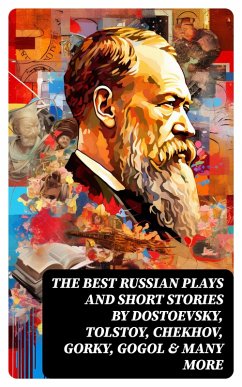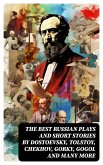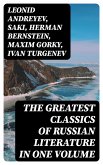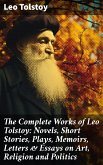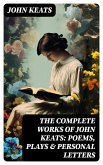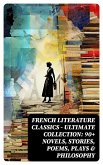The Best Russian Plays and Short Stories by Dostoevsky, Tolstoy, Chekhov, Gorky, Gogol, and many more' is an extraordinary collection that gathers the quintessential works of Russian literature from the 19th and early 20th centuries. This anthology explores the rich tapestry of themes that define the Russian literary canon: existential angst, the quest for social justice, the complexities of human relationships, and the search for meaning in a rapidly changing world. The diversity of literary styles-ranging from the psychological depth of Dostoevsky to Chekhov's subtle realism and Tolstoy's epic narratives-illustrates the breadth and depth of Russian storytelling. This collection stands as a testament to the enduring power of these narratives in understanding the human condition. The contributing authors and editors of this anthology are not only central figures in the Russian literary tradition but also pivotal players in the historical, cultural, and social movements of their time.Drawing from personal experiences shaped by the socio-political landscapes of their respective eras, their collective works presented in this anthology provide a panoramic view of Russian society through its various stages of evolution. The convergence of such disparate voices around common themes not only highlights the universality of these concerns but also provides a rich multidisciplinary context for exploring the intersections of literature, history, and philosophy.Reserving a space on one's bookshelf for 'The Best Russian Plays and Short Stories' promises an unparalleled journey through the heart and soul of Russia, as seen through the eyes of its most celebrated writers. It invites readers not only to appreciate the aesthetic beauty of its writings but also to engage with the intellectual rigor and emotional depth that these works demand. This anthology serves as a crucial bridge connecting the reader to the vast landscape of Russian thought and emotion, offering a unique opportunity to explore the confluence of history, culture, and individual psyche that continues to resonate with the universal themes of humanity.
Dieser Download kann aus rechtlichen Gründen nur mit Rechnungsadresse in A, B, BG, CY, CZ, D, DK, EW, E, FIN, F, GR, H, IRL, I, LT, L, LR, M, NL, PL, P, R, S, SLO, SK ausgeliefert werden.

